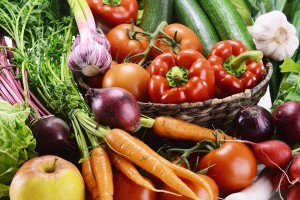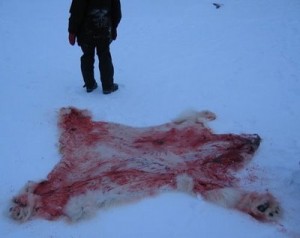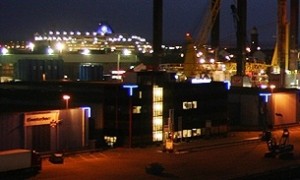Worldlog Settimana 12 – 2013
Durante il dibattito sulla frode immensa nel settore alimentare, ho ribadito al governo che è il governo stesso che deve controllare rigorosamente il settore alimentare. Dobbiamo anche smetterla di voler produrre a prezzi sempre più bassi i nostri prodotti. Fortunatamente alcuni partiti e il segretario dell’Economia erano d’accordo su ciò.
Il segretario vuole che il settore industriale della carne, paghi di più per i controlli effettuati dallo stato e chiede anche che siano effettuati più controlli dallo stato. Questo ci da speranza, sarà meno una questione del macellaio che controlli la sua propria carne! Sono positiva sulle misure che saranno introdotte e mi aspetto che il governo si impegnerà per prevenire la frode alimentare il più possibile.
Gli scandali alimentari più recenti non sono una novità. Sono solo esempi l’EHEC, la malattia delle mucche pazze e la salmonella nel salmone. Gli scandali alimentari sono attuali da almeno 25 anni e dimostrano i problemi strutturali dell’industria alimentare e in particolare della carne. Sono causati da una voglia di produrre a costi sempre più bassi. Questo porta a dei comportamenti opportunistici. I negozianti vogliono comprare la carne ad un costo basso e cercano chi la vende a meno, spesso a grossa distanza e senza conoscerlo.
Mentre il settore alimentare da anni è in ricerca di prodotti più economici, il governo punta sempre sull’autocontrollo. L’autocontrollo però non funziona in un settore che non conosce l’autocritica. Dobbiamo cambiare! Il governo deve prendersi la responsabilità del controllo e verificare che la frode venga identificata e punita. Si può raggiungere ciò tramite più controllori, una migliore verifica e delle punizioni più severe. L’autocontrollo deve diventare un fenomeno del passato.
Buone notizie per l’orso polare! Il governo deve impegnarsi a livello europeo per raggiungere un divieto europeo d’importo ed esporto di prodotti dell’orso polare. Questo è un risultato dalle nostre mozioni, che sono state appoggiate da tutta la Camera. La settimana scorsa, al topo del CITES, vi è stata una votazione sulla proposta degli Stati Uniti di dare all’orso polare il grado più alto di protezione. I membri dell’Unione Europea hanno deciso di non supportare questa proposta. L’Unione Europea è l’importatore più importante dei prodotti dell’orso polare col 65%.
E’ una vergogna che l’Unione Europea abbia ostacolato un divieto internazionale d’importazione e commercio. I Paesi Bassi devono ora aumentare la pressione nell’Unione Europea per introdurre il prima possibile un divieto europeo sull’importazione e commercio dei prodotti dell’orso polare.
C’è un’altra bella novità questa settimana! Il governo deve prevenire lo spreco di energia, scoraggiando che la luce resti accesa alla sera negli uffici e negozi. In Francia sarà tra poco obbligatorio spegnere le luci nei negozi e negli uffici dopo che l’ultimo dipendente vada a casa. Vogliamo che i Paesi Bassi seguano questo buon esempio ed introduca un divieto simile.
Un saluto! Marianne
In the debate on large-scale food fraud, I let the government know in no uncertain terms that it needs to strongly police and enforce food regulations. We also need to get rid of the pressure to produce ever cheaper food. Fortunately, several parties and the State Secretary of Economic Affairs share this opinion.
The State Secretary wants the meat industry to pay for government inspection and enforcement and she also wants more government inspections. This sounds hopeful! The butchers will no longer be allowed to set the standard! I feel good about the measures to come and assume the cabinet will work hard to make this policy a reality. It will ensure food fraudsters will not get a look in.

Because, have you noticed the number of food scandals recently? EHEC, mad cow disease, and salmonella salmon are just a few examples. We’ve had food scandals these last 25 years, and they show the structural issues with our food and meat industries. They’re linked to the push to produce food as cheaply as possible. This leads to opportunistic behaviour. Traders want to purchase meat as cheap as they can and look for the cheapest bidder, often at great distance and without knowing who they are.
While the parties in food industry have been searching for the cheapest products for years, the government’s policy has always focused on self-regulation. But self-regulation doesn’t work in a sector that won’t look at itself in the mirror. We need change now! The government needs to take over primary inspection duties and to make sure that fraudulent practices are detected and dealt with. This is possible with additional inspectors, better enforcement and more severe punishments. Self-regulation must definitively belong to the past.
Great news for the polar bear! The government needs to work in Europe for a European import and trade back on polar bear products. This, as a result of our motions, was supported by the entire house. Last week the CITES summit reached consensus on a proposal by the United States to give the polar bear the very highest protection rating. The European Union member states then jointly decided not to support the proposal. The European Union, at 65%, imports the most polar bear products.

How shameful that the European Union blocked an international import and trade ban. Thanks to the accepted motion, the Netherlands must now pressure the European Union to set up a European import and trade ban on polar bear products as quickly as possible.
More good news this week! The government needs to combat energy wastage by cutting back on the number of lit empty office and shopping spaces at night. France will soon make it compulsory for shops and offices to shut off the lights after the last employee has gone home. We want the Netherlands to follow this good example and introduce a similar obligation.

Greetings! Marianne